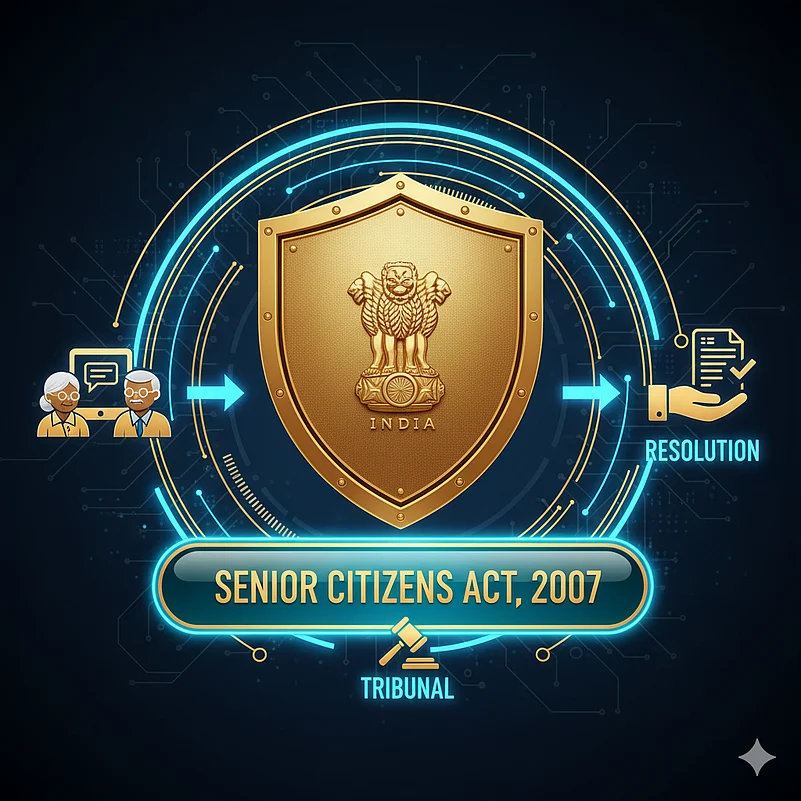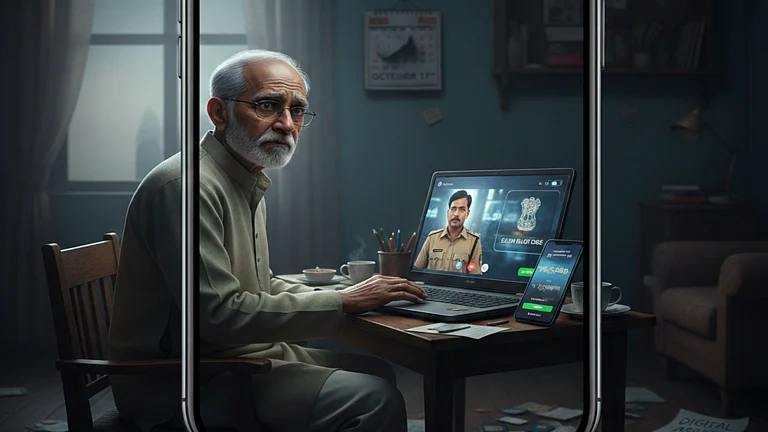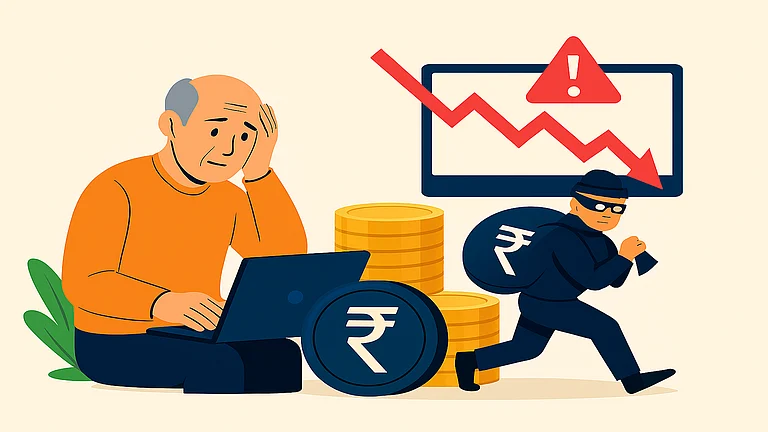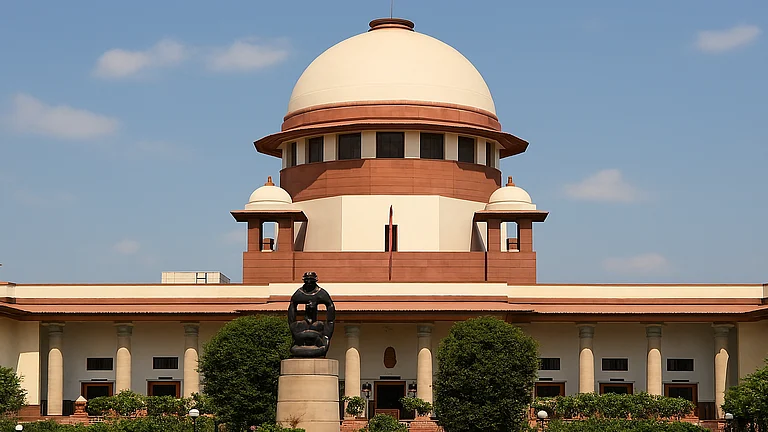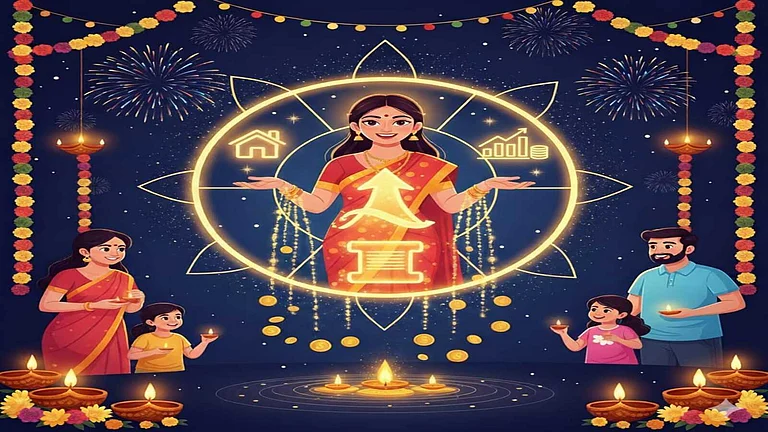
Summary of this article
Senior Citizens Act, 2007 ensures dignified living standards for elderly, but only around 35 per cent of senior citizens are aware of legal protections in India
Senior citizens in India have a low awareness of the legal protection available to them. Only 35 per cent of the elderly aged 60 and above are aware of the legal provisions and protections available to them. In comparison, 68 per cent are aware of pension schemes and 63 per cent know about ration and housing schemes, according to the study titled 'Understanding Intergenerational Dynamics & Perceptions on Ageing' by HelpAge, published in June 2025. Further, approximately 34 per cent of seniors feel neglected and abused in old age. However, this issue can be addressed if seniors become more informed about their legal rights. There is a specific law for seniors, 'The Maintenance and Welfare of Parents and Senior Citizens Act, 2007'.
While the Act aims to ensure a dignified life for seniors in their twilight years, the lack of awareness about who to approach and how to escalate the complaint are the key obstacles. Seniors may keep tolerating iniquity knowing no way out.
Maintenance And Welfare Of Parents And Senior Citizens Act, 2007
The Act lays down provisions for the medical care of senior citizens, maintenance of parents and senior citizens, and protection of life and property, as well as defining the offence in this regard and the procedure for trial.
If a person who is responsible for taking care of a senior abandons such an elderly person, it will be a punishable offence, either for a term of up to three months of imprisonment or a fine of up to Rs 5,000, or both.
When Senior Citizens Can Approach Authorities To Raise Their Issue
As per Section 22 of the Act, these could be the authorities senior citizens can go to in case of being neglected, abused, or not being maintained:
• "The State Government may, confer such powers and impose such duties on a District Magistrate as may be necessary, to ensure that the provisions of this Act are properly carried out and the District Magistrate may specify the officer, subordinate to him, who shall exercise all or any of the powers, and perform all or any of the duties, so conferred or imposed and the local limits within which such powers or duties shall be carried out by the officer as may be prescribed.
• The State Government shall prescribe a comprehensive action plan for providing protection of life and property of senior citizens."
In India, where family always has and still holds the top place in terms of eldercare, concentration of job opportunities is only in a few cities, along with other developments changing the family structures. Therefore, older adults need to be aware of their rights to live peacefully and with dignity.
How A Senior Can Make A Complaint Under The Senior Citizens Act, 2007
A senior must know that the law renders the responsibility to take care of elders to their children. In case of having no children, this responsibility lies on other legal heirs. In failing to do so, seniors can raise the issue to the authorities. As far as the escalation matrix is concerned, seniors need to first approach the District Magistrate (DM) of the city or the officer specified for this purpose and give the complaint in writing.
Bijal Ajinkya, Partner at Khaitan & Co., explains, "An application under the Senior Citizens Act, 2007, may only be filed by a senior citizen who is unable to maintain themselves, against his/her children, or in the case of a senior citizen that does not have any child, against a relative."
In the case of those who remain single, legal heirs or relatives are in line to bear the responsibility of maintenance of the elderly. However, the definition of relatives is not the same for all.
Ajinkya says, "A relative is defined to mean the legal heirs who would inherit the property of the senior citizen upon his/her demise, which would be determined under the relevant personal law and legislation, such as the Hindu Succession Act 1956 in the case of Hindus."
The authority structure may differ from one state to another based on the individual State Legislature.
Once a complaint is filed with the Senior Citizens Tribunal under the Act, the Tribunal verifies and takes action. It issues a notice to the children or legal heir to explain their reason for not maintaining the elderly.
"A notice is sent to the children/legal heirs from whom maintenance is sought under Section 5(3) of the 2007 Act, requesting them to show cause as to why interim orders for maintenance should not be passed against them. It is pertinent to note that the proceedings before the Tribunal are summary proceedings according to the 2007 Act, which suggests that the Tribunal need not engage itself with a protracted enquiry and the rigours of the Indian Evidence Act 1872, or adjudicate the rights of parties to any property in dispute," says Ajinkya.
She adds, "If the Tribunal is satisfied, it may order maintenance to be paid to the senior citizen, which is capped at INR 10,000 under Section 9 of the Act, but varies from state to state and may far exceed the stipulated sum. The Tribunal may even go further, and evict the children from the property owned by the senior citizen, or set aside a gift deed executed by the senior citizen in favour of the child/legal heir and restore possession to the senior citizen."
Once both sides are heard, the Tribunal passes the order. However, if it is not satisfactory, seniors can appeal against the order to the Appellate Tribunal or approach the High Court.
Although the study finds that youth in India (75 per cent) are willing to support elders, if a situation arises, as a senior one must know what needs to be done.



